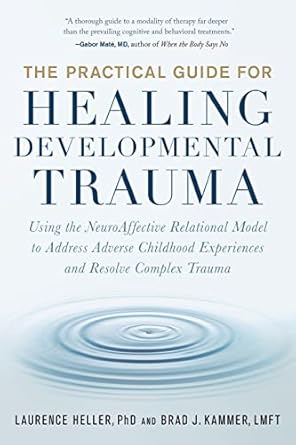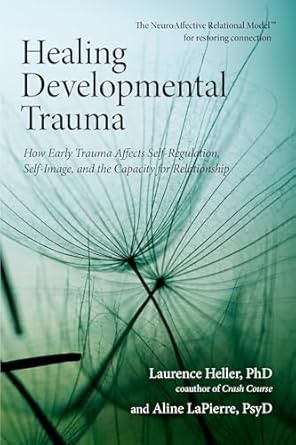What is NARM®?
The NeuroAffective Relational Model (NARM®) represents a groundbreaking approach to healing developmental trauma — the often invisible wounds that shape how we move through the world.
Drawing from psychodynamic psychotherapy, attachment theory, gestalt therapy, and diverse somatic approaches within a relational context, NARM® begins with a different premise to most traditional psychotherapy models. Rather than focusing on what went wrong, NARM® identifies and works towards what clients most want in their lives.
This resource-based approach gently explores the survival patterns that may be interfering with these core desires, while supporting the nervous systems natural capacity for healing and integration. NARM® recognises that symptoms and behaviours often represent intelligent adaptations to early relational wounds, rather than pathology to be eliminated.
Understanding Our Survival Patterns
As children, we are remarkably adaptive. When our core needs for safety, connection, attunement, trust, and autonomy are not consistently met, we develop survival strategies to navigate our environment. These patterns—while protective at the time—can later impact every aspect of our adult lives: our sense of identity, our emotional landscape, our physical well-being, our behaviors, and how we relate to ourselves and others.
NARM® recognises that these survival structures emerge from the gap between what we vitally need and what our early environment could provide. When secure bonding becomes difficult or impossible, our nervous system shifts into states of chronic activation. This ongoing stress doesn't just affect our bodies—it shapes our entire way of being, distorting how we see ourselves and the world around us, gradually disconnecting us from our authentic nature.


The Path to Integration
The goal of NARM® is not to eliminate these survival patterns but rather to create space for choice. As we become less identified with old protective strategies, we naturally develop access to our core capacities: openness, flexible stability, joy, natural responsibility, and clarity. This leads to what clients often describe as feeling "lighter" and "easier in themselves," less defined by past painful experiences.
NARM® integrates cutting-edge neuroscience with somatic awareness and relational psychology, creating a comprehensive framework that addresses the whole person. This process-oriented, body-based approach focuses on experiencing the present moment while honoring the wisdom of our developmental journey.
A Non-Pathologising Approach
What sets NARM® apart is its resource-oriented perspective. Rather than focusing on symptoms or deficits, NARM® emphasises connection to the parts of ourselves that are already organised, coherent, and functional. By anchoring clients in their inherent health and capacity, this approach builds internal awareness and resilience that supports lasting transformation.
This methodology bridges traditional psychotherapy with body-mind approaches, offering mental health professionals a framework that supports both symptom resolution and post-traumatic growth. At its core, NARM® recognises that healing happens through connection—to self, to others, and to the present moment.


The Broader Impact
While developmental trauma might seem like a specialised concern, the reality is far more universal. Many common mental health conditions—anxiety, depression, relationship difficulties, eating disorders, and chronic feelings of disconnection—often have their roots in early relational experiences and attachment disruptions.
NARM® provides a pathway not just for healing these symptoms, but for discovering greater resilience, healthier relationships, personal growth, and meaningful engagement with life itself.
Through this work, clients often discover that what they thought were their limitations were actually adaptations—and that beneath these protective layers lies a capacity for aliveness, flow, and authentic connection that was always there, waiting to be reclaimed.
How NARM® Works
NARM® operates through a unique meta-process that teaches clients to cultivate mindful awareness of themselves in the present moment. Unlike approaches that focus extensively on past trauma, NARM® explores personal history only to the degree that patterns from the past interfere with present-moment connection and self-regulation.
The model is organised around four primary principles:
01
Supporting Connection & Organisation
Working with the interplay between identity issues and our capacity for connection and regulation, helping clients access their body's natural self-regulatory capacities.
02
Exploring Identity
Using mindful inquiry to examine the deeper identifications and survival patterns we've come to mistake for our true identity.
03
Working in Present Time
Tracking the process of connection and disconnection as it happens in real-time, helping clients feel less like victims of their childhood and more connected to their sense of agency.
04
Regulating the Nervous System
Using both top-down (cognitive/emotional) and bottom-up (somatic/felt-sense) approaches to support nervous system regulation and expand therapeutic options.
For Practitioners
NARM® training enhances the work of psychotherapists, psychologists, counsellors, social workers, occupational therapists, bodyworkers, and educators.
The model provides a comprehensive framework for understanding how early relational experiences shape adult functioning, offering practical tools for supporting nervous system regulation and authentic connection.
Mental health professionals appreciate NARM®'s integration of neuroscience, attachment theory, and somatic awareness, along with its emphasis on working with client strengths rather than focusing primarily on pathology.
For Clients
NARM® is particularly effective for individuals experiencing anxiety, depression, relationship difficulties, chronic stress, eating disorders, addiction recovery, and complex trauma responses. Because developmental trauma underlies so many mental health challenges, NARM®'s approach to healing early attachment wounds can create transformation that extends far beyond symptom relief.
Adults who experienced childhood emotional neglect, inconsistent caregiving, or overwhelming family dynamics often find NARM® helps them reconnect with their authentic self and develop healthier relationship patterns. The approach is especially valuable for those who feel chronically disconnected from their body, emotions, or sense of vitality.
In our modern world, many people struggle with:
- Difficulty forming and maintaining authentic relationships
- Chronic stress and nervous system dysregulation
- Feeling disconnected from their bodies and emotions
- Patterns of people-pleasing or isolation
- Underlying anxiety, depression, or sense of emptiness

Resource vs. Deficit Focus
Instead of concentrating on what's wrong or broken, NARM® emphasises connection to the organised, functional aspects of self while gently bringing awareness to disorganised parts without making them the primary focus of therapy.
Present-Moment vs. Past-Oriented
While NARM® acknowledges the importance of early experiences, it focuses less on why someone developed certain patterns and more on how those survival styles distort present-moment experience and connection.
Integration of Body-Mind
Unlike purely cognitive or purely somatic approaches, NARM® integrates both top-down and bottom-up interventions, recognising the continuous loops of information between body and brain.
Survival Styles vs. Pathology
NARM® views adaptive patterns as initially successful survival strategies rather than pathology, helping clients understand that their coping mechanisms once served them while supporting the development of new, more flexible responses.
Connection-Oriented
At its core, NARM® recognises that healing happens through connection—it's our capacity for authentic relationship with self and others that brings regulation and transformation.
“The NARM approach represents a significant advancement in our understanding of developmental trauma. By addressing the adaptive survival styles that once protected us but now limit our capacity for connection, NARM® offers a compassionate path toward authentic selfhood.”
– Dr. Peter Levine (Founder of Somatic Experiencing)
“The Neuroaffective Relational Model provides clinicians with essential tools for addressing the complex legacy of developmental trauma. Dr. Heller’s work brilliantly bridges somatic awareness with relational dynamics in a way that is both profound and accessible.”
– Dr. Bessel van der Kolk
“NARM’s integration of top-down and bottom-up approaches creates a uniquely effective methodology for working with developmental trauma. It honors both the wisdom of the body and the importance of meaning-making in the healing process.”
– Dr. Stephen Porges (Developer of Polyvagal Theory)
“NARM offers a powerful framework for understanding how early life experiences shape our nervous system and capacity for connection. Its precise clinical methodology helps clinicians navigate the complex terrain of developmental trauma with clarity and effectiveness.”
– Dr. Pat Ogden (Founder of Sensorimotor Psychotherapy)
“The NARM model skillfully applies the principles of Polyvagal Theory to developmental trauma treatment. Its focus on regulating the nervous system while addressing identity distortions represents trauma therapy at its most sophisticated level.”
– Dr. Dan Siegel (Interpersonal Neurobiology)
“NARM exemplifies the integration of interpersonal neurobiology principles into clinical practice. Its emphasis on present-moment awareness, somatic mindfulness, and relational attunement creates a powerful context for healing developmental trauma.”
– Janina Fisher, PhD (Trauma Expert)
“NARM offers clinicians a comprehensive roadmap for addressing the complex interplay between attachment, identity, and nervous system regulation. It’s a profound contribution to the field of trauma therapy.”
– Richard Schwartz, PhD (Founder of Internal Family Systems)
“NARM’s sophisticated understanding of the ways trauma affects our connection to self and others makes it an essential approach for clinicians working with complex trauma. Dr. Heller has developed a model that honors both our survival adaptations and our innate capacity for healing.”
– Diane Poole Heller, PhD (Attachment Expert)
“The Neuroaffective Relational Model represents a quantum leap in our ability to work effectively with developmental trauma. Its integration of somatic, attachment, and mindfulness-based approaches creates a powerful context for transformation.”
Kathy Kain (Somatic Practice Developer)
Drama Therapist & Psychotherapist, Danai
Integrative Relational Psychotherapist, Marcella
"I have been personally and professionally moved by the transformative power and safety of the NARM approach, and this is the model I am most aligned with in my practice. I am passionate about shining a light on and exploring the ripple effect of trauma on our bodies and our lives and empowering my clients to transform even the deepest of wounds."
— Marcella Howard, Integrative Relational Psychotherapist and NARM® Clinician
"Using NARM principles to explore clients’ inner landscape creates a relational field that allows new experiences and insights to gently grow in parts of the psyche that have not had the opportunity to develop and flourish. I believe that it is this process that ultimately leads to transformation and healing”.
– Dr Helma Mair, Psychotherapist & NARM® Clinician
"What I appreciate most about NARM is that it offers a container for myself and my clients to challenge our early survival strategies and show up more and more as our most authentic selves. We do this in a resourcing and capacity building way that offers more choice over time in how we relate to ourselves and others. NARM does not pathologise, rather it honours the whole human being, offering clients the possibility to unfold their healing journey in their own unique way.
— Rob Wills, Psychosynthesis Counsellor and NARM® Clinician
NARM®'s meta-process fundamentally disrupts the brain's tendency to use the past to predict the future, supporting clients in developing new patterns of connection and self-regulation anchored in present-moment awareness.
"Through the work I have learned how to connect to myself, trust myself and to sense into what I am feeling without apology or shame. The process has been truly magical! Working through my traumas and learning about what I need in life has opened so much space for wonderment and joy."
"For me the experience was profound. It was a dissolving of long held patterns and an utterly emotional awakening where concepts I had previously understood intellectually were being realised emotionally. Actions that in the past were near impossible for me and were causing illness were now easier, more than that, they have become essential and they bring relief and joy."
"This work has been a truly healing, learning and insightful experience. Through wisdom in trauma work, I have learned how to react in ways that nourish my needs, as well as those around me. Even after the first session I had such breakthroughs."
"This work has changed my life, I have felt able to go deeper than ever before. I am no longer just surviving, I can see things beyond my childhood trauma."
"After working with multiple therapeutic approaches, with NARM I feel less stuck, less scared, and less bound by my early trauma. I finally feel free. I am very grateful for the work."
"I would highly recommend the use of the NARM technique. After several years trying to work on my developmental childhood trauma, twelve NARM sessions completely turned things around. It gave me the tools to begin to hold and transform them myself so that the good feeling lasted beyond the therapy room and I was able to make lasting changes to my life. Before this I spent a lot of time and money on therapists to be a listening ear to my hurts each week, but ultimately never shifting from the same habits that kept me locked into childhood insecurities. The NARM approach shone a light on these problem patterns and every single session was focused and productive."
Laurence Heller, PhD
Laurence Heller, PhD is the founder of both the NeuroAffective Relational Model® (NARM®) and the NARM Training Institute. He has a doctorate in psychology and over 40 years of clinical experience. In recent years, Dr. Heller has dedicated his time to training seasoned clinicians and NARM professionals globally in the NARM® approach.
Dr. Heller first introduced the NARM® model in his best-selling book Healing Developmental Trauma: How Early Trauma Affects Self-Regulation, Self-Image and the Capacity for Relationship, originally published in 2012 and since translated into more than 15 languages. He is also co-author of Crash Course, a book focused on shock trauma.
His latest work, The Practical Guide for Healing Developmental Trauma: Using the NeuroAffective Relational Model to Address Adverse Childhood Experiences and Resolve Complex Trauma, co-authored with Brad Kammer LMFT, presents the clinical applications of NARM® which is now widely recognised as one of the most comprehensive models for working with complex trauma.
Beyond his teaching schedule, Dr. Heller collaborates with Christina Bethell, PhD at Johns Hopkins Bloomberg School of Public Health on bringing trauma-informed understanding to pediatricians and general practitioners across the US.
At the core of NARM® Trauma Work: Healing the Heartbreak
An introduction to the professional training in healing developmental trauma by Ralf Marzen- audio only
NARM® BASICS TRAINING VIDEO: Relationships and Intimacy Dynamics
Trauma & The Case for Utilizing NARM Therapy in Clinical Social Work: Implications for Practice, Compassion Fatigue, & Burnout
Jennifer Vasquez · April C. Bowie‑Viverette
The Impact of the NeuroAffective Relational Model (NARM) on Client Agency
Jennifer Vasquez
The Impact of Vicarious Trauma Exposure on the Professional Sustainability of Trauma Therapists: A Qualitative Analysis of Neuro Affecctive Relational Model (NARM) Therapists
Jennifer Vasquez
Social and Relational Health Risks and Common Mental Health Problems Among US Children
The Mitigating Role of Family Resilience and Connection to Promote Positive Socioemotional and School-Related Outcomes
Christina D. Bethell, PhD, MBA, MPH, Andrew S. Garner, MD, PhD , Narangerel Gombojav, MD, PhD , Courtney Blackwell, PhD , Laurence Heller, PhD , Tamar Mendelson, PhD
Toward An Integrative Somatic Depth Psychotherapeutic Model For Relational Trauma: Exploring The Psychotherapy Client’s Lived Embodied Experience
NADINE MACALUSO
Meaning Making: Understanding Professional Quality Of Life For Neuroaffective Relational Model Trained Trauma Therapists
Jennifer Vasquez



